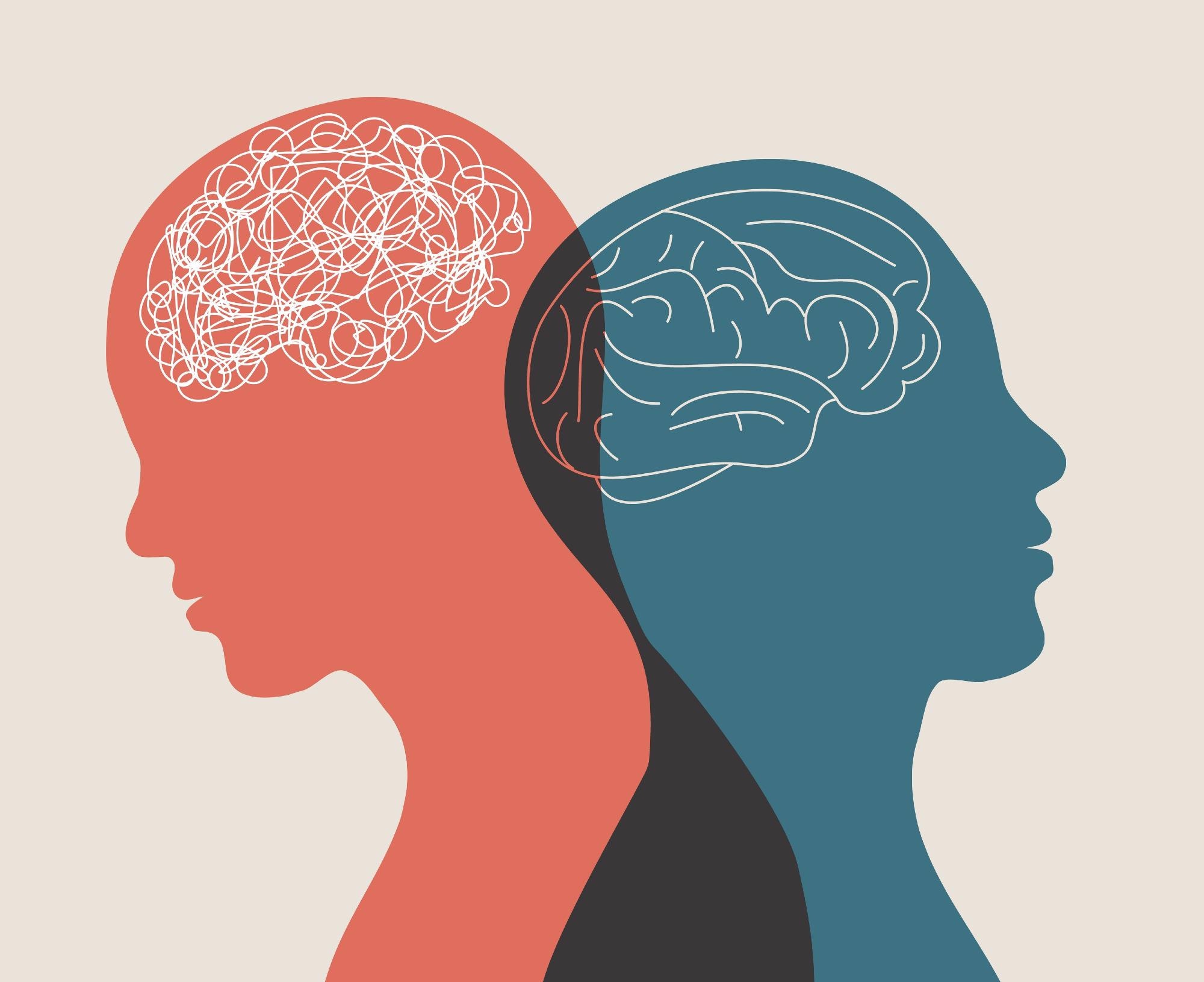Proven Mental Health Services Tailored to Your Requirements
Wiki Article
Exploring the Connection In Between Nutrition and Mental Wellness Improvement
In the realm of psychological health, the influence of nourishment is a subject of expanding rate of interest and study. The intricate interaction between what we consume and how we feel expands much beyond mere physical health. The implications of our nutritional options on mental health have been significantly recognized by health and wellness experts and researchers alike. As we navigate the complicated landscape of modern-day way of lives, discovering the nuanced partnership between nourishment and mental health and wellness enhancement might hold the trick to unlocking a deeper understanding of our emotional and cognitive durability.Impact of Food on Mood
The relationship in between nutritional selections and mood law is a crucial facet of recognizing the effect of food on mental wellness. Research has revealed that specific foods can influence natural chemical activity, impacting mood and emotions. For instance, foods abundant in omega-3 fats, such as fatty fish, walnuts, and flaxseeds, have actually been connected to reduced prices of depression and improved mood guideline.Additionally, complicated carbs located in entire grains, fruits, and veggies can aid regulate blood glucose degrees, which consequently can have a favorable effect on mood stability. On the other hand, diets high in processed foods, sugar, and hydrogenated fats have actually been connected with an enhanced risk of clinical depression and state of mind problems.
Furthermore, the gut-brain link plays a significant duty in state of mind guideline. The digestive tract microbiome, influenced by the foods we consume, can connect with the mind with the gut-brain axis, influencing state of mind, anxiety levels, and overall mental health. Consequently, making nutritious and conscious dietary choices is vital for maintaining a healthy and balanced and balanced state of mind.

Important Nutrients for Stress And Anxiety

Moreover, the amino acid tryptophan, located in foods like turkey, eggs, and nuts, is a precursor to serotonin manufacturing, a natural chemical understood for its duty in promoting sensations of calmness and health. Vitamin B complex, particularly B6 and B12, are also important for preserving a healthy and balanced anxious system and might help in reducing anxiety signs.
Integrating these necessary nutrients into a well-balanced diet regimen can have a favorable effect on handling anxiety and improving total psychological health and wellness.
Dietary Techniques for Anxiety

One nutritional strategy for managing depression is concentrating on foods rich in omega-3 fats, such as fatty fish, flaxseeds, and walnuts. Omega-3 fats have been connected to reducing inflammation in the mind and boosting neurotransmitter feature, which can positively influence mood. In addition, raising the intake of fruits, vegetables, whole grains, and lean healthy proteins while reducing the consumption of processed foods and sugars may aid in easing depressive signs.
Additionally, preserving adequate degrees of vitamin D, either through sunshine exposure or supplements, is crucial for supporting psychological health. Vitamin D deficiency has actually been related to an enhanced threat of anxiety, making it crucial to make certain sufficient consumption of this nutrient. By incorporating these nutritional strategies, people might successfully match typical treatments for anxiety and improve their general well-being.
Gut-Brain Axis and Mental Health
Focusing on the intricate connection in between the gastrointestinal system and mental wellness, the Gut-Brain Axis plays a crucial function in influencing cognitive functions and psychological wellness. The Gut-Brain Axis is a bidirectional interaction network in between the main nerves and the enteric nerve system, connecting the cognitive and psychological centers of the mind with peripheral intestinal tract features. This axis is regulated by an elaborate interaction of neural, immune, endocrine, and metabolic paths.Research study suggests that the structure of gut microbiota, the varied community of microorganisms living in the intestinal system, can have a profound effect on psychological health. Imbalances in digestive tract microbiota, called dysbiosis, have been linked with conditions such as anxiety, anxiety, and even neurodegenerative diseases. The digestive tract microbiota plays a vital duty in the manufacturing of natural chemicals like serotonin, which is important for controling state of mind and emotional responses.
Maintaining a healthy digestive tract microbiota with a balanced diet regimen rich in fiber, fermented foods, and probiotics is essential for sustaining psychological wellness (Mental Health Services). Approaches targeted at enhancing the Gut-Brain Axis offer appealing opportunities for boosting emotional wellness and cognitive function
Nourishment's Function in Cognitive Feature
Provided the substantial impact of the Gut-Brain Axis on psychological wellness, recognizing exactly how nourishment influences cognitive feature comes to be critical in advertising total well-being. Nutrition plays a crucial role in cognitive feature by offering vital nutrients that support brain health and wellness and optimal performance.Key nutrients such as omega-3 fats, antioxidants, minerals, and vitamins are recognized to boost cognitive capacities, consisting of memory, emphasis, and problem-solving skills. Omega-3 fats, discovered in fatty fish like salmon and nuts, have actually been linked view it to improved memory and cognitive feature. Anti-oxidants, plentiful in veggies and fruits, assistance protect mind cells from damages brought on by totally free radicals, thus preserving cognitive feature.
In addition, a well balanced diet plan abundant in whole grains, lean proteins, fruits, and vegetables can favorably affect cognitive feature by stabilizing blood glucose degrees and providing continual power to the brain. Alternatively, diets high in processed foods, saturated fats, and sugars have been connected with cognitive decline and damaged mind function. Making notified dietary options is crucial for preserving optimum cognitive function and general psychological health.
Final Thought
To conclude, the relationship in Discover More between nourishment and psychological health and wellness is multifaceted and intricate. The impact of food on mood, essential nutrients for stress and anxiety, dietary strategies for clinical depression, the gut-brain axis, and nutrition's duty in cognitive function all play essential roles in psychological health. Understanding the link in between nutrition and psychological wellness improvement is necessary for promoting total wellness and addressing mental health and wellness issues. Further research study and understanding in this field are required for progressing treatments and treatments.The effects of our nutritional choices on mental health have been increasingly recognized by health and wellness experts and researchers alike. As we navigate the facility landscape of modern-day way of livings, discovering the nuanced relationship between nutrition and mental health and wellness enhancement might hold the key to unlocking a deeper understanding of our psychological and cognitive resilience.
check this Building upon the essential nutrients that sustain mental health and wellness, especially in taking care of anxiety problems, the emphasis currently changes in the direction of examining dietary strategies for dealing with depression.Focusing on the detailed link in between the gastrointestinal system and psychological wellness, the Gut-Brain Axis plays an essential role in affecting cognitive features and psychological health (Mental Health Services). Comprehending the connection in between nutrition and mental health renovation is crucial for advertising general health and addressing mental health and wellness issues
Report this wiki page